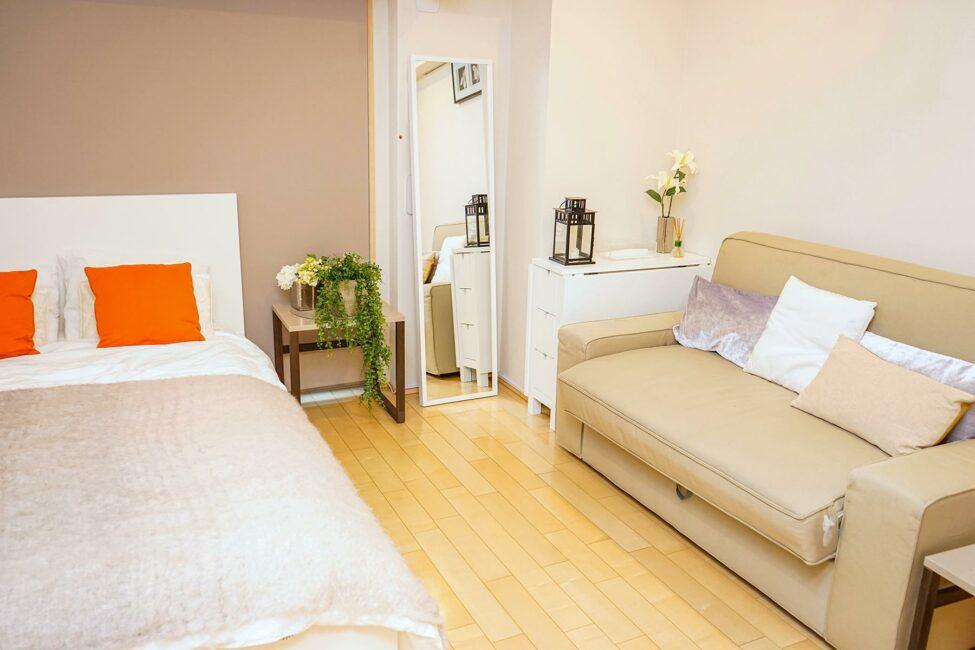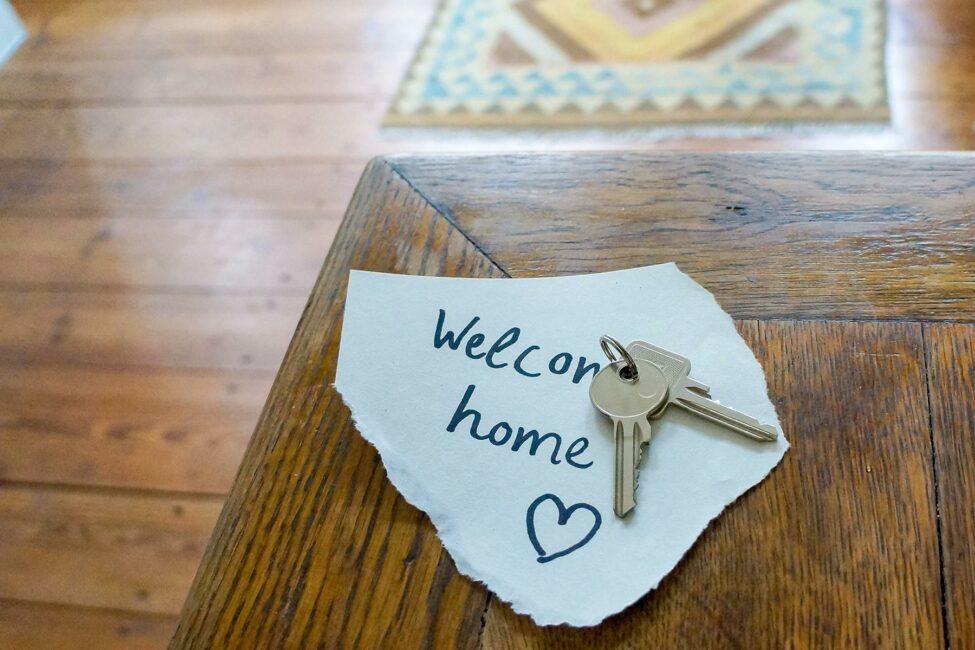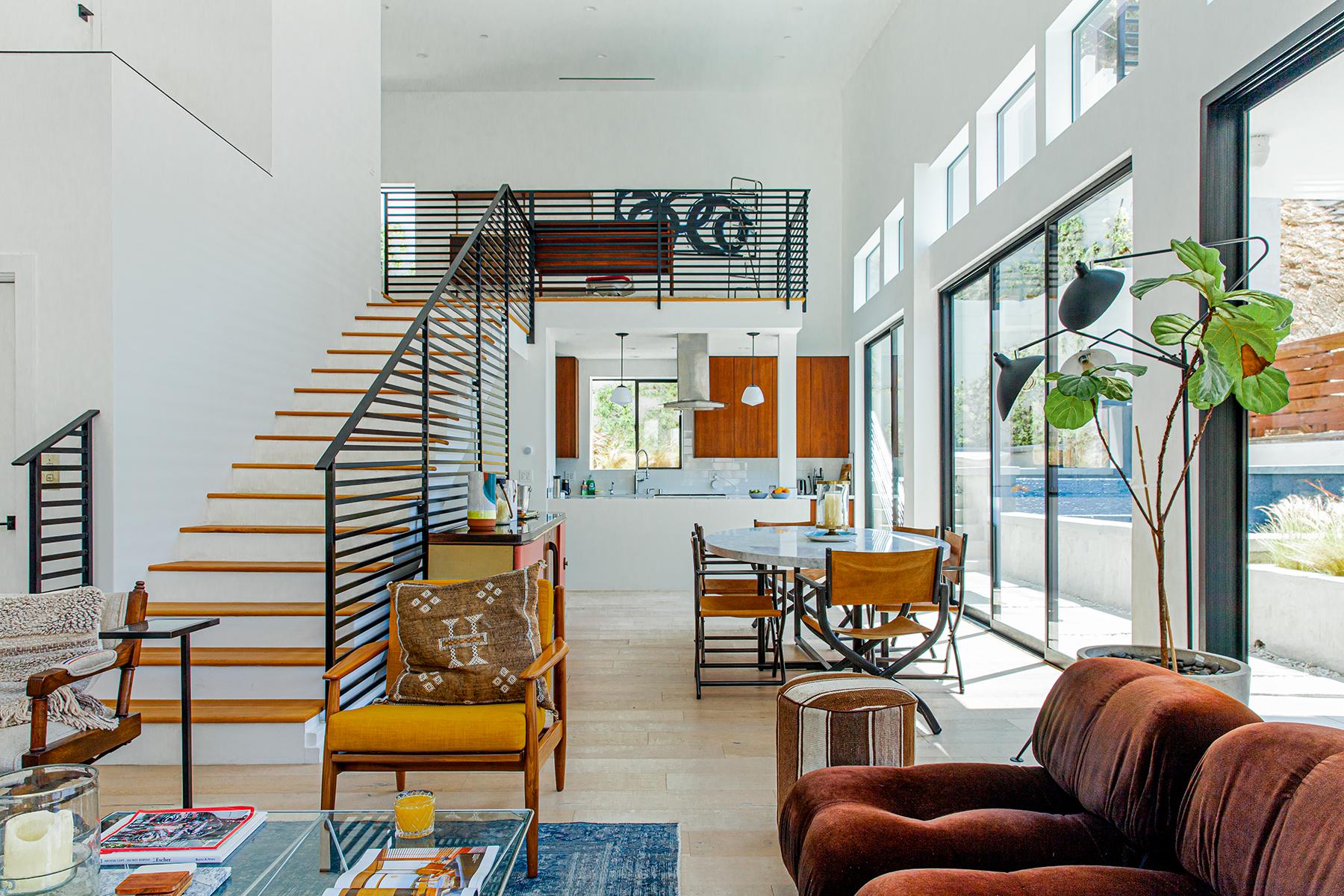How to make sure your short term rental property meets your expectations.
When you rent out someone’s house, apartment, yurt, or treehouse, you do it (in part, at least) so you can experience what it feels like to live as the locals do—whether you’re in a crowded city or an isolated rural location. But before you book, it’s important to first make sure that you are truly capable of living in their habitat. So, whether you are staying in a refurbished 1910 rowhouse in Washington, D.C., a cabana in Armenia, or a converted school bus in London, these are the key things you’ll need to know.
Accessibility
After what could be a long day of traveling, arriving at a place that doesn’t meet your expectations is unpleasant. So, you’re going to want to know ahead of time about “roadblocks,” both manmade and curve-balls thrown by Mother Nature (at least in part). Prime example: stairs and snow. Not knowing that you’ll need an energy reserve to carry bags up four flights of un-shoveled, snow-covered stairs can set you up for a disappointing stay (or at least an exhausting and frustrating arrival). Because it’s simply part of winter life in the mountains, your hosts may not make a note of it even in a well-thought-out description; for them, that’s just the way it is at 9,000 feet, sometimes even in late June. Therefore, before you book, ask specific questions about your arrival to find out about the distance from where you’ll park your car to the entrance of the rental and what the path is like to get there—say, cobblestones, pebbles, or dirt. If it’s not roller-suitcase friendly, it’ll be nice to know ahead of time.
Recommended Fodor’s Video

Timing
If you are the type who always books the first flight of the morning or if you prefer to leave after work, you’re going to want to know a few things about how your rental host operates your arrival. Even before you have a plane reservation, find out if there’s an early check-in option; if not, ask if there’s a secure place for you to drop your bags so you can go out and explore before checking in. (And always ask if the host is going to charge you extra for accommodating you this way.) Ask, too, about the possibility of a late checkout. You’ll also need to know about the key. If the rental doesn’t have a keyless entry, you may have to arrive before a rental office closes, restricting your travel plans. If you’re traveling with a group, find out if everyone can get their own key.
Layout
Even if you are not traveling with children who may fight over which room or which bed they want, it’s helpful to know the setup of a home’s interior before you’ve arrived, especially the nuances of an atypical layout: Perhaps the kitchen is upstairs and some, but not all, bedrooms are downstairs. And, even if a host has stellar reviews, for those traveling with children, people with disabilities, or the elderly, the bathroom layout could be a reservation dealbreaker; after all, tubs may be better for the toddlers in your group, but you’ll also need a shower stall. Further, stairs that need to be navigated once inside the property could turn even a five-star home into a non-starter for someone with mobility issues.

Lighting
Professional photos may make a property look well-lit; poor photos may not do it justice. So, find out if the lighting is true to form by asking about natural light, especially for vacation rentals known as “English basements,” notoriously missing natural light. Low lighting may not be a problem for you; but, it’s nice to know ahead of time. And, if there’s little sun access, what has the host done to compensate? Is there a lot of overhead lighting, are there tons of lamps with bright bulbs (and even, are there flashlights in case the power goes out in a storm)? Further, if you like to sleep late and require blackout shades, ask your host about the morning sun.
Noise
If you are booking a stay in a city, you’ll expect some level of noise—from sirens to honking horns. But, not all cities are loud 24/7; and many even have quiet enclaves. So ask about the general noise levels in the neighborhood as well as any nearby interruptions such as above-ground trains that run in the middle of the night or construction that starts at 7 am. And find out if you should expect internal noise. If you are renting a room or part of a house from people who live upstairs, downstairs, or in adjacent rooms, find out about who’s there and determine if it’s a problem for you. If large barking dogs will remind you, in a good way, of your dog at home, then perhaps you’ll be fine if your host has dogs that you can hear scurrying on hardwood floors or howling. If you are taking a vacation from your own kids, then screaming children or crying babies who live upstairs might be an imperfect rental situation, even if the rest of the home is perfect. Conversely, as a courtesy to your host, let them know if you’ll be bringing babies or children.

Privacy
Many travelers want to meet their hosts, ask questions about the neighborhood, or even wax poetic about the accommodations. Others shy away from small talk and prefer little or no interaction. Therefore, determine your comfort zone before you book and find out a few things about the host’s expectations before you go: Do they have a quick handshake-style or are they an inquisitive reporter-type? Some may mention this in their description. If they don’t, you’re going to want to know before you walk to the end of their dock to watch the sunset and they decide to interject themselves into your romantic moment. You will also want to know the host’s proximity in case you need something fixed or a problem solved. It’s nice to know if there will be someone to call in the middle of the night who can come right away or if you’ll be left on your own to track down a property manager who only works 9 to 5. Finally, for your safety, find out about your host’s access to the property. For example, is there a double-sided lock between where you are staying and where the host lives?

Cleaning
There’s no quality control in the world of short-term rental properties. That means if a host hasn’t advertised in their description of how the property is cleaned, ask. Then it’s up to you to decide whether you require a professionally cleaned home or one tidied by the host. For those with a green streak, consider asking about what kinds of cleaning products the host uses and what kinds of laundry detergents are provided.
Price
It never hurts to ask if the price is negotiable. The host can always say, “No” and you can make your decision from there. The host may also be incentivized if you say you’ll be renting their property a few times a year or for a week or more. Very popular, too, is to ask about discounts for members of the military. Again, it never hurts to ask. And if you don’t like the answer, you don’t have to book.

Transportation
Short-term rental hosts know how best to get around. Ask if you’ll need a car and, if so, what kind of car. Will a minivan do, or will you need a four-wheel-drive truck? And, since distances can be deceiving, find out about how far things really are from each other and what that means for you. In a city, a grocery store two miles away is far and could take an hour in traffic, while two miles in a rural area is considered extremely close. If you don’t need a car, find out about transportation options. Will it be easy to hail a cab or will you need to download a car-sharing app such as Uber or Lyft? Find out if you can you walk to a transportation hub (and how far will that be in minutes) and whether buses or trains run all night. Finally, always find out if it’s safe to walk around, especially at night.
Food
Your food questions will piggyback off of your transportation questions. If your city host tells you that you don’t need a car and that you can walk to supermarkets, find out what that means. For a city-dweller, walking five blocks to a supermarket is basic; but, to someone who lives in the suburbs, it could seem like a total chore. In that case, you may want a car. Restaurants are key too. After a long day of sight-seeing, you may want to stay close to your rental home. Think ahead, and ask about those food establishments before you book your stay: First, what does “nearby” mean—is it five minutes or 30 minutes? Second, find out what kinds of restaurants the host is talking about—are they fast-food chains, family-friendly restaurants, or local establishments? When you are tired and hungry, this will matter to you.







